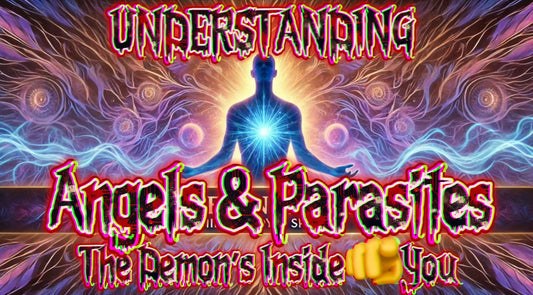Why is Tim Walz Wife Acting Like They Aren't Done Fighting the Trump Victory???
— ModernShaman (@ModernShaman777) November 9, 2024
READ THE FULL ARTICLE HERE:https://t.co/IrTucO8Ftg#TransitionOfPower #DeepState #FederalReserve #JFKLegacy #MilitaryIndustrialComplex #PoliticalInfluence #HiddenPower #EndTheFed #CentralBanking pic.twitter.com/NjjVkiTVqQ
Speculating on Unforeseen Events that Could Disrupt the Transition of Power
As election season draws closer, the anticipation for a peaceful transition of power—traditionally a hallmark of democratic stability—looms large. But what if this anticipated transfer of leadership was somehow disrupted by unseen forces? Recent years have shown us that the political landscape can shift rapidly, sometimes in unexpected and turbulent ways. Could it be possible that an unforeseen event might arise to delay or prevent the traditional transition of power? In this article, we explore a few hypothetical scenarios and consider the motivations of certain entrenched interests who may have much to lose from a genuine shift in political direction.
1. The Power of the Central Banking System

A cornerstone of the global economic framework, the Federal Reserve (the "Fed") has played a significant role in American and global finances since its inception in 1913. As an independent central bank, the Fed wields extraordinary power over interest rates, the money supply, and even inflation, essentially controlling the levers of the economy. However, its role and influence have not gone unchallenged—JFK, for example, famously issued Executive Order 11110, which sought to transfer power from the Fed back to the U.S. Treasury, allowing it to issue currency directly. Tragically, just months after this bold move, JFK was assassinated. To this day, some speculate that his attempt to undercut the central bank may have been linked to his untimely death.
If a new administration aimed to reform or even dismantle the Fed, transitioning control of the currency back to the U.S. Treasury, it would likely face a formidable backlash. A sudden shift in leadership might prompt those tied to the banking industry, financial markets, and Wall Street to resist such a transition. Could deep-rooted institutions resist a transition of power to prevent this? It's not outside the realm of possibility, given the historical weight of JFK’s legacy and the ongoing debate over central banking's role in America.
2. Deep State Interests: Maintaining Influence

The term "Deep State" often refers to a network of influential bureaucrats, intelligence agencies, and other unelected officials within government institutions who may operate independently of elected leadership. The idea is that this network holds a powerful sway over the continuity of government policies regardless of political shifts.
One might argue that if a leader came to power with intentions to overhaul or undermine the Deep State's priorities, such as national security policy, international relations, or intelligence operations, the Deep State could be incentivized to resist. Given the reach and resources of these institutions, they might have a vested interest in ensuring that those who take the helm of power align with their goals, and if an incoming administration presents a challenge to this alignment, unforeseen events could conveniently disrupt the natural course of political succession.
3. The Threat of Ending Endless Wars and Shifting Power Dynamics

Wars have often been justified as matters of national security, but they also bring vast economic gains for certain industries. The "military-industrial complex," a term popularized by President Dwight D. Eisenhower, highlights the intricate relationship between defense contractors, the government, and industries that benefit from perpetual conflict.
If an administration took a staunch stance against endless wars or sought to cut back on defense spending, this could challenge powerful vested interests within the military-industrial complex. Disrupting a peaceful transfer of power might serve as a last-ditch effort by those who stand to lose profits and influence. From delaying elections to pushing for alternative solutions in the face of "national emergencies," many possibilities remain.
4. Intelligence and Surveillance Apparatus: The Ultimate Safety Net?

In recent decades, surveillance capabilities and intelligence gathering have reached unprecedented levels, shaping the way power is maintained and managed. The intelligence community may see a transition of power as a threat if it signals a potential shift away from the expansive surveillance networks established post-9/11. New leaders may seek to reform, limit, or even dismantle certain practices, which could weaken the deep-rooted interests that benefit from these programs.
Could this apparatus, with its extensive access to sensitive information and powerful resources, exert influence over the electoral process to ensure that its objectives remain intact? The possibility may be far-fetched to some, but history has shown that intelligence agencies are no strangers to covert operations when national interests are perceived to be at stake.
5. Controlling the Economy Through Monetary Policy: What if the Fed Was Dissolved?

One of the boldest moves a president could make would be to eliminate the Federal Reserve, transferring the power of monetary policy directly to the Treasury. By consolidating control over the currency, the government would have direct authority over the economy, a shift that could decentralize financial influence from elite banking institutions.
While radical, such a move could potentially return financial autonomy to the American people, as was attempted under JFK. But such a change would threaten to topple decades of influence built by powerful families and institutions tied to the central banking system. What if such a move was imminent under a new administration? The disruption of power transfer to prevent such an event might be too tempting for those with substantial stakes in the current system.
Conclusion: A Prelude to Power Games?

Ultimately, these speculative scenarios suggest that the transition of power in America is not always as seamless or straightforward as it appears on the surface. History has shown that powerful interests—be they central banking elites, military-industrial stakeholders, or intelligence agencies—have a vested interest in maintaining their influence over national policy. Whether through unforeseen events or overt resistance, the possibility remains that powerful forces might actively work to delay or even disrupt a peaceful transfer of power if it threatens their core interests.
While these scenarios remain speculative, they remind us of the complex and often hidden web of influence that surrounds the American political process. As we look toward the future, it's worth considering that sometimes, the struggle for power goes far deeper than the ballot box, hinting at a world where unseen players might shape our reality in ways we may never fully understand.
Modern Shaman & AVa




